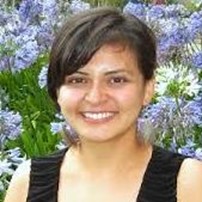Written by Emily Creasy, WOU SPO communications intern

Western Oregon University Professors Dr. Alicia Ibaraki and Dr. Kathy Espino-Pérez received a grant from the National Science Foundation to develop and host a conference about promoting access to graduate education and increasing diversity within psychology research programs. The grant is called Build and Broaden: Enabling New Social, Behavioral and Economic Science Collaborations with Minority-Serving Institutions and is funded through the Directorate for Social, Behavioral, and Economic Sciences (SBE). Drs. Ibaraki and Espino-Pérez are both passionate about increasing diversity in PhD programs and when they heard about the call for proposals from the National Science Foundation, Dr. Espino- Pérez stated that they were “really excited to jump on board.”
The grant consists of $110,199 divided amongst three schools: Dr. Ibaraki and Dr. Espino- Pérez, at Western Oregon University, Dr. Kathy Becker-Blease at Oregon State University, and Dr. Amy Nusbaum at Heritage University. One of the objectives of their project is to increase diversity in science by encouraging regional partnerships between research institutions such as Oregon State University and minority serving institutions like Heritage and Western Oregon University. These collaborations between institutions would allow students to access undergraduate research opportunities to boost their admission potential when they apply for graduate schools. The project will also bring regional stakeholders together to address systemic biases that limit opportunities for first-generation, Latinx, African-American, Native American, and students with disabilities who wish to pursue careers in psychological science.


The project timeframe runs from September 2020 to the end of August 2021 and it is organized into three stages: data collection, conference, and dissemination of their findings. As part of the data collection stage, surveys were disseminated to the admissions departments of various graduate schools. This survey included questions about admissions processes before and after COVID-19, what a diverse student body looks like to each institution, the use of application fees, required testing (GREs), and other possible equity issues. For example, when graduate schools waived their GRE requirements, they found increased diversity amongst their student body. The second stage is to develop and host a conference in May presenting their findings from the data collected from universities. They have also recruited the following speakers: Julia Kent (Vice President, Best Practices and Strategic Initiatives), Gabriela Chavira (Professor of Psychology, California State University Northridge), Terry McGlynn (Professor of Biology, California State University Dominguez Hills), and Robert Sellers (Vice Provost for Equity & Inclusion; Chief Diversity Officer; Charles D. Moody Collegiate Professor of Psychology and Professor of Education, University of Michigan). Lastly, the third stage involves incorporating their findings into a manuscript after the conference. They will gather feedback from conference attendees, data from hands-on activities conducted at the conference, research literature, and compile their findings into their manuscript to be written after the conference.

As part of the grant, Dr. Ibaraki and Dr. Espino-Pérez have received funding for WOU students to get involved with the project. They are looking to hire a paid research assistant to provide support throughout the spring. The research assistant will assist with Q and A sessions during the conference, data analysis, conference preparations, and drafting the manuscript from the conference. More information about this job and the application can be found on Handshake.
Collaborate! Reach out to others, build partnerships, and take advantage of grant trainings and talking to program officers!
— Dr. Espino-Perez
Reflecting on their project so far, Dr. Ibaraki and Dr. Espino-Pérez described their excitement about the conference and the speakers who are attending. Dr. Espino-Pérez stated that she was looking forward to digging into the data they collected and seeing the reaction of various stakeholders when they share their findings. For those out there looking to conduct similar projects they offer one critical piece of advice: Collaborate! Reach out to others, build partnerships, and take advantage of grant trainings and talking to program officers!
 Portal
Portal